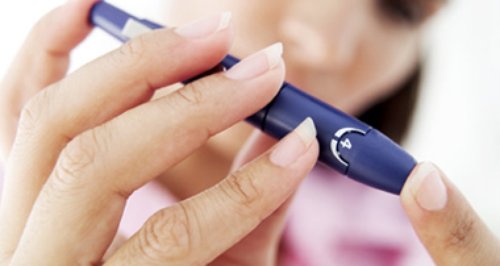On Air Now
The Capital Late Show with Sonny Jay 10pm - 1am
14 November 2018, 07:03 | Updated: 14 November 2018, 07:08

A GP from Southport who's saved the NHS thousands of pounds and put 55 people with type 2 diabetes into remission using the low-carb diet says adopting the lifestyle approach may "literally save lives".
Last year, Dr David Unwin handed back £57,000 of unspent money from his surgery's drugs budget by encouraging his patients to ditch rice, pasta and potatoes and sugary foods, suggesting they eat more fish, meat, eggs and green vegetables instead.
The GP, from Southport, Merseyside, is due to discuss lifestyle prescription and the benefits of eating low-carb at the Diabetes Professional Care 2018 conference in London later this month.
Dr Unwin said: "I'm really interested in empowering patients by giving them lifestyle choices in a bid to overturn their type 2 diabetes.
"My passion is, at the point of diagnosis, offering people a three-month trial of diet and exercise instead of drugs. Hundreds of people within my practice are taking this up.
"Over the years, I've seen an eight-fold increase in the number of people with type 2 diabetes. This is a serious epidemic.
"But what is brilliant is I'm seeing patients - on a weekly basis - who are putting their diabetes into remission without having used any drugs at all.
"Not only are we saving the NHS and the Government large amounts of money on medication, but we're literally transforming their lives at the same time.
"The average patient is losing 19 pounds in weight and is so proud - it's a win, win situation."
Despite the positives, the low-carb approach has been deemed by many as controversial.
But Dr Unwin said opinions are now starting to shift, with the Scottish Intercollegiate Guidelines Network (SIGN) now even supporting the dietary choice for tackling obesity.
"There's been immense progress and more change is coming, the pioneering approach is really shaking up the healthcare industry," he added.
"The Royal College of Practitioners has also published a low-carb e-learning module which is available to all their 52,000 GPs and both Diabetes UK and the British Diabetic Association also recognise the diet as an option."
Dr Unwin said an increasing number of healthcare professionals are getting in touch with him about the low-carb diet.
He said: "I'm being contacted by GPs all over the country who want to see me in surgery and I now have a waiting list.
"I'm hopeful that by presenting at DPC2018 I'll be able to enlighten attendees and educate them about the huge benefits that the low-carb diet can bring to their patients."